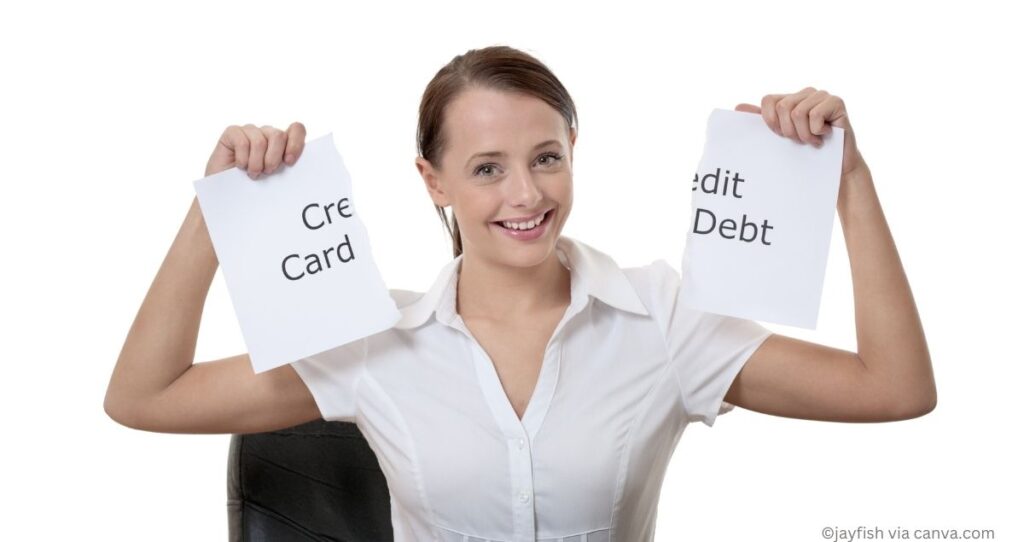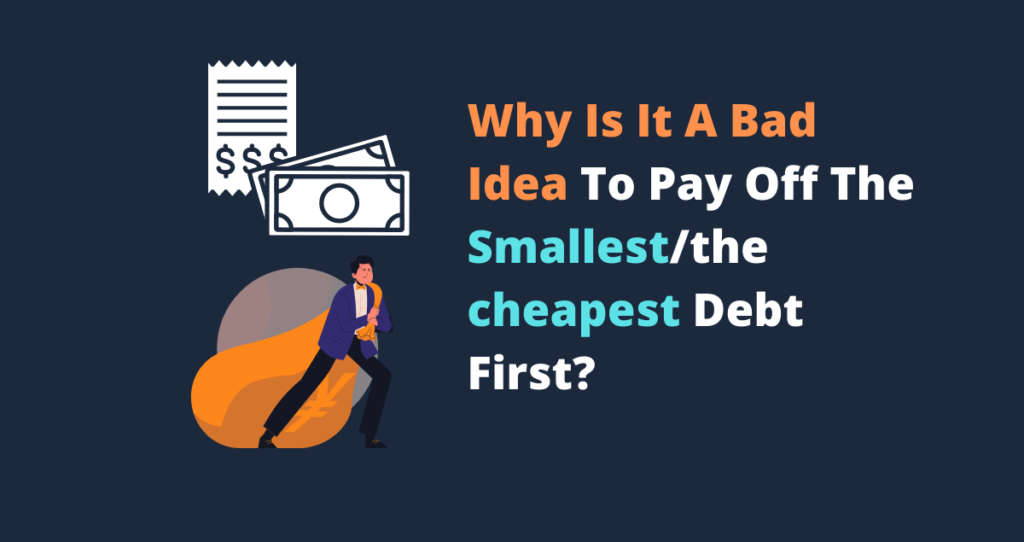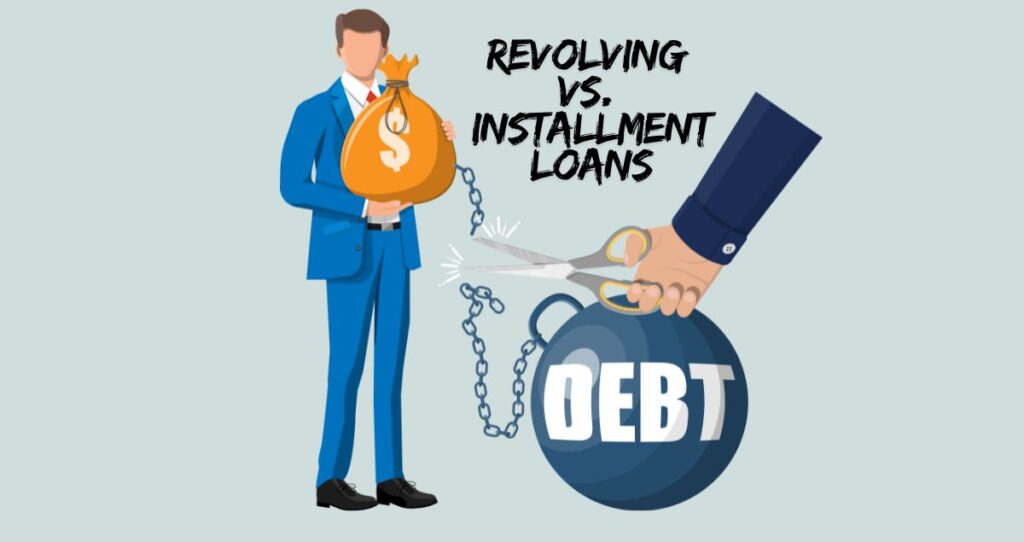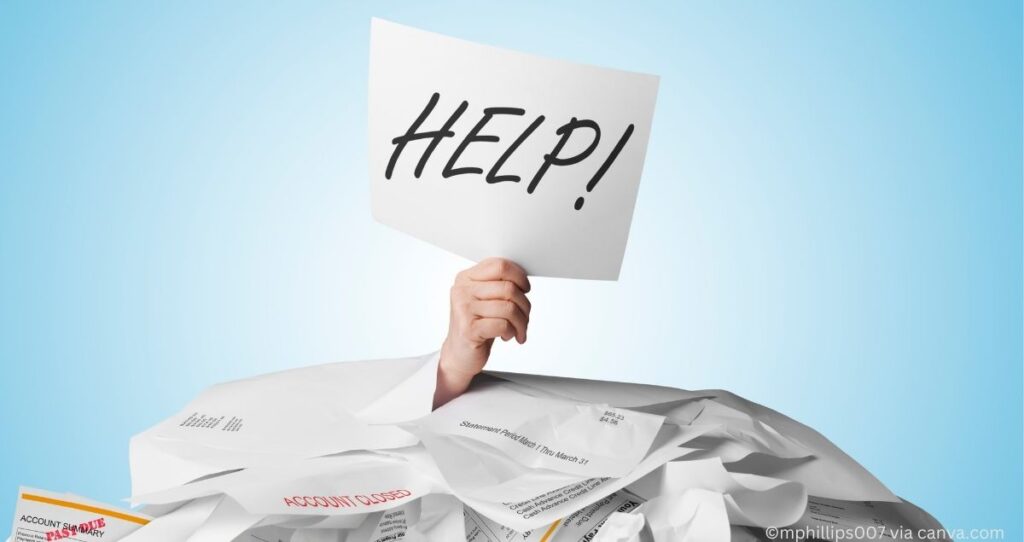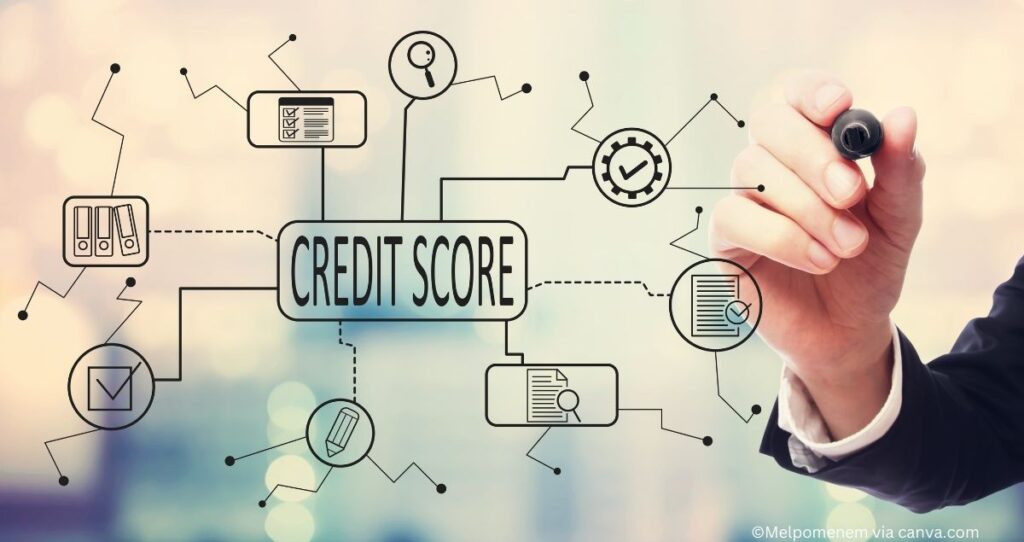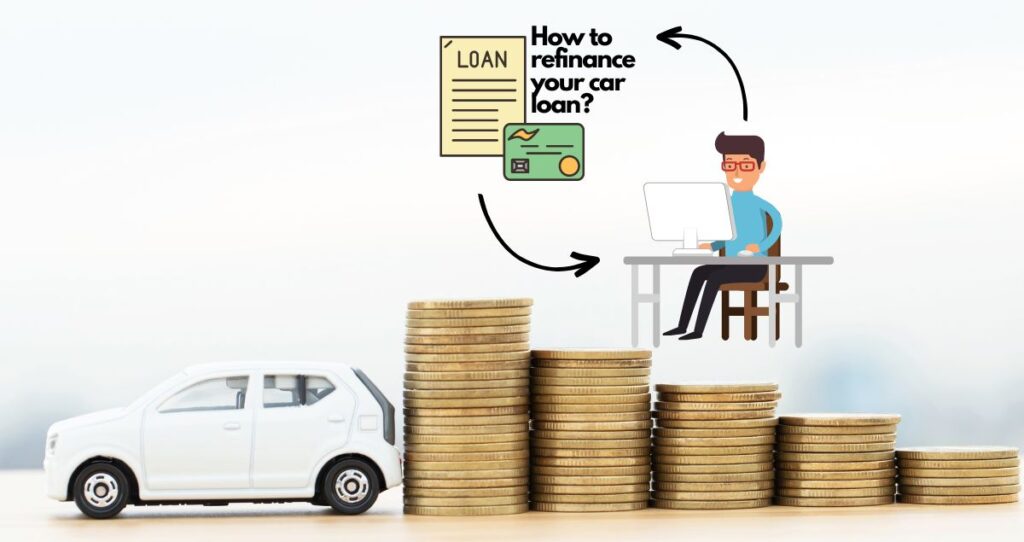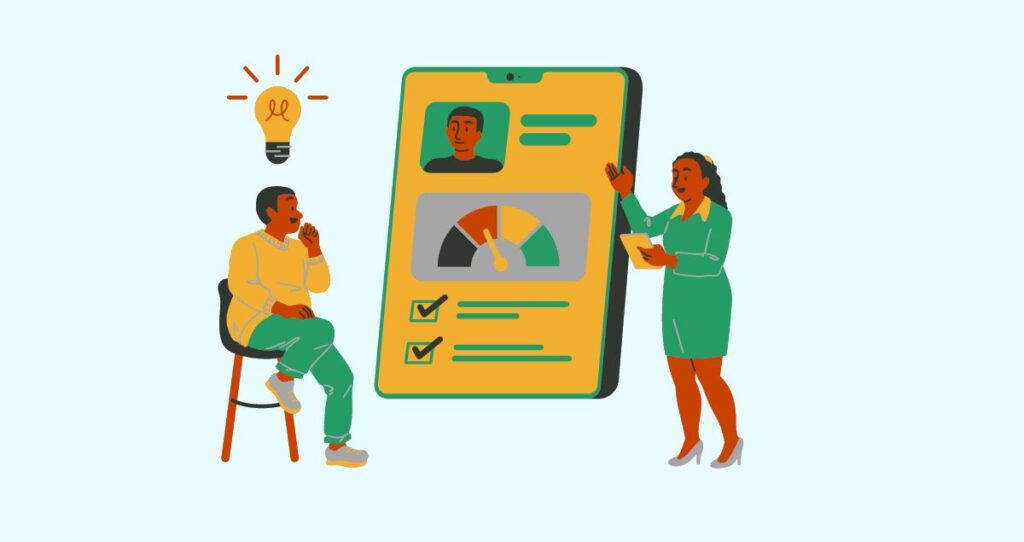According to a recent report by Northwestern Mutual, as reported by Money, the average personal debt for U.S. consumers is $23,000, not including mortgages. Credit card debt accounts for 28%, while car loans take second place for 13%. According to the Motley Fool, if you count the mortgage, the household loan balance jumps much higher as the average mortgage debt per household stands at a whopping $244,498. Looking at these numbers, it is easy to understand why millions of consumers struggle financially, and some cannot pay off their debts.
While debt can help you buy things you don’t have cash for, too much debt can cripple your finances and prevent you from building wealth. For example, you cannot afford to increase your retirement contributions and invest in your future if every penny you make contributes to your monthly debt payments.
This is why paying off your debts fast is essential in improving your situation and achieving your financial goals. If you are looking for an easy-to-follow guide to getting out of debt fast, I have a debt management strategy to help you eliminate debt fast.
Here are the 14 easy tips to pay off debt quickly and reach your goals.
1. Know how much debt you have
Are you wondering why I started the list by telling you to figure out how much debt you have? This step is intentional and one of the most essential steps in paying off debt. Before you pay off your debt, you need to know how much debt you have.
This allows you to examine the current balance of each type of debt, which is essential in establishing a debt payment plan. The best way to figure this out is to list all your debts in a simple table showing the type of debt, its balance, and the interest you pay. This way, you can see how much each debt costs you in interest charges and the total combined debt balance.
2. Pay off the smallest debt first
If you struggle to meet your monthly debt payments due to low income, starting with the smallest debt first is the best strategy to pay off debt. This strategy is popular for low-income people or those seeking quick, small wins. With this strategy, you list all your loans, from the smallest to the highest, and pay the minimum payment on each debt to stay current.
Then, add the remaining funds to pay off the smallest debt until it is fully paid. This strategy is known as the debt snowball method, and it can help you eliminate a small debt that costs you a higher interest while simultaneously reducing the total debt. The downside of this strategy is that focusing on the smallest debt can cost you more money in interest charges if larger balance debts on your credit reports also have higher interest rates.
Here are steps to pay off debt using the debt snowball method.
- List all your debts, starting from the smallest debt balance to the highest balance.
- Pay the minimum payment on each debt monthly to stay current
- Add the remaining balance to the smallest debt until it is fully paying
- Move to the next smallest debt and repeat the process, eliminating the smallest debt first.
Again, I assume you are attempting to pay off debt on a low income. You might need to try a different strategy if you have enough disposable income. In this case, you can try the following clever way to pay off debt that most people don’t know about.
3. Pay off the most expensive debt first
“most expensive” refers to debt with the highest interest and unfavorable terms. Remember, earlier, I mentioned that you list all your debts in a simple table showing each type of debt, the balance, and the interest rate.
Looking at the table you created in Step 1, you will realize that some debts cost you more interest rates than others. For example, revolving credit accounts such as credit cards and personal loans will be some of the most expensive debts you have on your list. In this case, paying off these debts first will help you get out of debt faster.
For example, a $20,000 credit card debt with a 25% Annual Percentage Rate (APR) is more expensive than a $30,000 student loan at 10%. The more interest you pay on a loan, the more expensive the loan becomes.
To use this strategy to pay off your debt, list all your debts, starting with the highest interest to the lowest interest. Then, pay the minimum payment on each debt to start current and add any extra cash toward paying off the first debt on the list. Once the first debt is paid off, move to the second debt and repeat the process. This strategy is known as the debt avalanche method and is probably the fastest way to pay off debt.
Here are steps to use the debt avalanche when paying off debt fast.
- List all your debts from the smallest interest to the largest interest
- Pay the minimum payment on each debt to stay current
- Add remaining cash on paying off the first debt
- Continue this process until the first debt is paid off
- Move the second debt and repeat the process until all your debts are paid off.
This clever way to pay off debt might not give you quick wins, but it effectively helps you get out of debt quickly by eliminating high-interest debts. The downside of this debt management strategy is that the debt with the highest interest might also have a large balance, which could take longer to eliminate. If you are not committed enough or prefer quick wins, sticking to a debt snowball might be your best strategy to pay off debt.
4. Monitor your credit card spending
While paying off debt, you must avoid any activities that can contribute to more debt. Credit card spending is one of the most tempting activities that leads to more debt that people don’t realize, leading to debt accumulation. Technically, any balance on your credit card is considered a loan and must be paid off with interest. That is why watching how much you spend on your credit cards is essential for getting out of debt fast.
According to the Motley Fool, the average credit card balance was about $6,501 in Q3 of 2023. While this balance does not sound like a lot, being a credit card debt makes it hard to pay off due to compounding interest and higher interest rates.
Forbes Advisor says the overall credit card APR is 28.75% as of November 2024, making credit cards some of the financial products with the highest interest in the lending industry. Even if you have less than $10,000 in credit card debts, this debt can quickly grow and get out of hand if you don’t take action. Overspending on your credit cards also increases your chances of defaulting on your debts due to higher APR.
Avoid making large purchases with credit cards to stay on track when paying off debt. You should also use credit cards for things you have cash for. Don’t use a credit card if you don’t have cash to purchase. Never make an imposed purchase with a credit card. These credit card tips can help you maintain a lower balance, essential when paying off debt.
5. Create a budget
Most people don’t like budgeting due to hating numbers. If you are one of those people, it is possible that you don’t have a budget. Creating a budget, however, is necessary to pay off debt. Your budget does not have to be complicated. A simple list showing your income, expenses, savings, wants and needs, and potential savings will complete the job.
You need a budget to help you recognize where your money goes, potential overspending areas, and where to cut back to save extra cash. In simple terms, the budget shows you if you are living above your means, below your means, or within your means.
Again, every dollar counts when paying off debts. Even if a budget will help you save a few dollars per month, allocating these few dollars towards paying off your debts can save you thousands of dollars over the loan’s lifetime.
6. Avoid paying the minimum payment on credit cards.
Credit card debts are some of the most common debts anyone can have on their credit reports. These debts are designed to keep you in debt forever by allowing you to pay the minimum payment. A simple $10,000 credit card debt can take up to 20 years or more to pay off if you only focus on the minimum payment. These debts also compound daily, another factor that makes credit cards harder to pay off.
When you pay the minimum payment, you carry most of your credit card balance, which leads to high interest and fees.
For this reason, you should always pay more than the minimum payment on revolving credit, such as credit card debts. Paying the minimum would only make sense when using the debt snowball strategy to pay off debt.
7. Consolidate your debts
Debt consolidation is a clever way to pay off debt fast as it allows you to lower interest on your debts, making them affordable. When you consolidate your debts, you combine all your loans on a single loan which is usually easy to manage and pay off. Refinancing your loans is another tip to pay off debt fast as it helps you lower interest on your loans. For example, if you face the risk of foreclosure due to higher interest on your mortgage and rates have gone lower, refinancing your mortgage can help you tap into lower rates, making your monthly payments affordable.
When you consolidate a loan, you replace it with a new one with a lower interest rate and different terms. To get the most out of debt consolidation, improve your credit score, lower your DTI ratio, and have proof of income, as these factors improve your creditworthiness.
8. Do a balance transfer.
If you have a credit card with a higher interest rate or with annual fees, transferring your balance to another credit card can help you pay off your debts faster. Typically, a smart way to transfer your balance is to move it to a 0% APR credit card with no annual fee. This allows you to pay no interest on the balance during the promotional period and use your money to lower the credit card balance instead of spending it on interest charges.
9. Live within your means
Getting out of debt is not an easy task. Not only do you have to cut back on expenses, but you also have to struggle with losing your assets if you cannot pay off your loans. Changing your lifestyle, however, can help you pay off your debts fast and avoid long-term financial hardships.
If you are serious about getting out of debt, you must live below your means. You cannot say you want to repay debt and continue eating out daily. Maintaining a simple lifestyle is critical in paying off debt, especially with a low income.
According to AARP, 55% of Americans spend money equal to or more than they make. This is sad news for millions of people. If you are one of them, I want to ask you the following question. The lack of savings means you are one step from defaulting on your loans. Change your lifestyle and adopt frugal habits to pay off your debt quickly.
10. Negotiate lower rates with your lenders or get a different payment plan.
Contact your lender immediately if you cannot meet your monthly debt obligation. Working with your lender about changes in your financial situation, such as a loss of a job or a reduction in income, is essential to avoid default.
Depending on your situation, you might qualify for a reduced interest rate, a modified monthly payment, or a different payment structure until you get back on your feet. Some lenders, for example, might allow you to pay only interest for a few months while looking for a job.
Another great way to pay off debt faster is to utilize free resources and support available in your location. Each state has organizations and institutions that offer free resources and guidance on paying off your loans properly.
For example, debt counseling agencies can help you establish a debt repayment plan, negotiate better terms with your lenders, or help you apply for different programs to help you pay off debts.
11. Get a second job to pay off debt faster
If you are trying to pay off many debts but your income is insufficient, getting a second job might be a great way to manage your debts. Making more money can help you increase your monthly income, allowing you to pay off your debts faster and saving you money in interest charges.
If your schedule does not allow you a second full-time job, get a part-time job. This is because some jobs can allow you to pick hours that will work for you. To get the most out of a part-time job, focus on jobs that offer a higher hourly rate. This way, you will work fewer hours and make more money.
If you can’t find a job that pays a higher hourly rate, take what you can find. A $7.25/hour is better than nothing.
Related post: 49 easy ways to make money fast: A complete guide
12. Downside your belongings to create a second income
Did you know that you can create a second income? You can sell things you don’t need by decluttering your home. If you have hundreds of pairs of shoes and a ton of clothes, consider downsizing. Having that much stuff while your bank knocks on your door will not make sense. The money you collect from these sales can be used to pay some of your debts.
13. Do not save or invest money when you have a debt to pay off
Saving money is important to improve your finances and build wealth. Keeping money in a savings account when you have a 25%APR credit card balance is not a great financial decision.
You must know when to save and use the money to pay off your debts. The same principle also applies to inventing. While investing is a great path to financial success, you must know when to invest and when to pay off debt first.
For example, most investments pay less than 10% return on investment. If you have money, should you use it to pay off your credit card debt or invest it? The answer is simple and clear. Use the money to pay off your credit card balance because it costs more than you earn from investing or savings. Paying 25% APR to make a 10% return on investment does not make sense.
You must prioritize your debts first, save, or invest only when necessary.
14. Use your vacation for a side hustle instead of a vacation
Some of you may not want to hear this. Instead of spending your entire month on a beach in Hawaii, you can use this time to make extra money to help you pay off your debt.
Why should you focus on the debt instead of vacation? This is what will happen if you go somewhere for a vacation.
- You will spend thousands on your flight
- The hotel will charge you a lot of money
- Restaurants will get their shares
- You will spend money on T-shirts for memory, etc.
There is nothing wrong with all that. However, the money you will spend on that vacation will be in the thousands.
If you use this money toward your debt, you will be ahead of your payments. On top of that, you could work somewhere to increase your salary for that month. You are still getting paid at your regular job, the second job is paying you, and your debt is going down.
